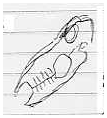 |
|
 |
||||||
Science: |
||||||
Richard Rorty dismisses the "correspondence" model of truth and says that knowledge is an idea that lets you get something done. Daniel Dennett says that perceptions are to be understood as capacities to respond to stimuli rather than as representations of the external world in the mind's eye (or "Cartesian theater"). While Rorty is talking about human thought and Dennett's talking about animal perception, their messages are similar.
Rorty says that instead of worrying about whether a truth claim corresponds to the objective truth of the universe, one should consider what one can accomplish with that truth claim. "Truth" is a mental tool invented by people to get work done. It's not important whether the periodic table of the elements corresponds to reality; what's important is that it helps you do chemistry.
Dennett says that perception isn't a reflection of the external world in the internal mind. Rather, it's a complex of neural routines for identifying, differentiating, categorizing, and recognizing stimuli. Perception is a mental tool invented by animals to get work done. It doesn't matter whether the "red" in your perception corresponds to the "real" red "out there." What matters is whether the perception of red helps a cherry-eating primate (you, for instance) discern cherries among the leaves.
—JoT |
||||||